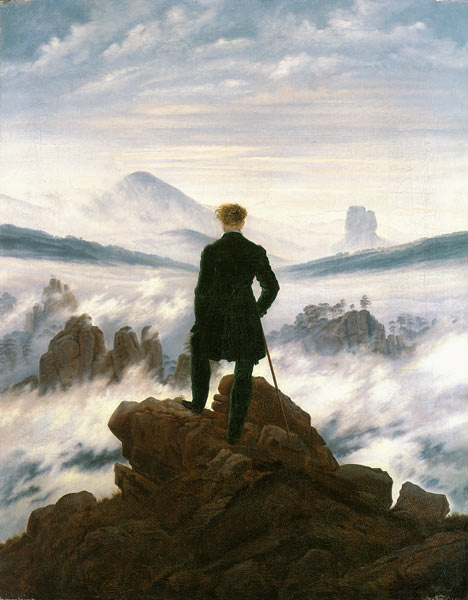 Ever since the beginning of the industrial revolution during the last decades of the eighteenth century, humanity has become obsessed with change. First in Europe, where the revolution originated. Then in Europe’s overseas offshoots, and finally in other places as well. By the middle of the nineteenth century, at the latest, it was clear that the world was being transformed at an unprecedented pace and would continue to do so in the future. As change accelerated there appeared a whole genre of visionaries who made it their job to try and look into that future—starting with Jules Verne and passing through H. G. Wells all the way to Ray Kurzweil and Yuval Harari.
Ever since the beginning of the industrial revolution during the last decades of the eighteenth century, humanity has become obsessed with change. First in Europe, where the revolution originated. Then in Europe’s overseas offshoots, and finally in other places as well. By the middle of the nineteenth century, at the latest, it was clear that the world was being transformed at an unprecedented pace and would continue to do so in the future. As change accelerated there appeared a whole genre of visionaries who made it their job to try and look into that future—starting with Jules Verne and passing through H. G. Wells all the way to Ray Kurzweil and Yuval Harari.
Today it pleases me to try to put the idea on its head. Meaning, I am going to focus on some of the things I think are not going to change. Certainly not any time soon. Perhaps, not ever.
1. A world without war, meaning politically motivated and organized violence, is not in the cards. To be sure, starting in 1945 much of the planet has enjoyed what is sometimes known as the Long Peace. Meaning that, relative to the size of the earth’s population, fewer people have died in war than was the case during any other period from which figures are available. But let there be no illusions: the most important, if not the only, reason behind the decline is not the kind of sudden wish for peace (“the better angels of our nature”) some authors have postulated. It is nuclear deterrence, which has prevented the most important countries from fighting each other in earnest.
Unfortunately experience has shown that, under the shadow of the mushroom cloud, there is still plenty of room left for smaller but no less bloody conflicts. Especially, but certainly not exclusively, of the intrastate, or nontrinitarian, kind as opposed to the interstate, trinitarian one. Such being the case, a world without war would require two things. First, a situation where every person and every collective is always sufficiently happy with his/or its lot to refrain from resorting to violence. Second, a world government capable of identifying and deterring those who would resort to it from doing so. Since war is to a large extent a product of the emotions, moreover, such a government would have to pry into the hearts of every single person on earth. For good or ill, though, there is no indication that either of those conditions, let alone both, are anywhere close to being met.
2. Poverty will not be eradicated. Taking 1800 as their starting point, economic historians have estimated that, world-wide, real per capital product has risen thirtyfold. Based on this, there have been countless confident predictions concerning a golden future in which everyone will be, if not exactly as rich as Jeff Bezos, at any rate comfortably off. However, these predictions have failed to tqake into account two factors. First, wealth, poverty and of course comfort itself are not absolute but relative. In many ways, what was once seen as fit for a king is now not considered suitable even for a beggar. Second, though the production of material goods has in fact increased, the way those good are distributed has not become more equal. If anything, taking 1970 as our starting point, to the contrary.
3. We shall not gain immortality. It is true that, starting in late eighteenth-century France and Sweden and spreading to other countries, global life expectancy has more than doubled. Moreover, the pace at which years are being added to our lives has been accelrating. This has led some people to reason that, if only we could increase it fast enough (meaning, by more than a year every year), death would be postponed to the point where we shall become immortal. The first person to live for a thousand years, it has been claimed, has already been born or is about to be born soon enough. However, the calculation is flawed on two counts First, most of the increase in longevity has resulted from a decline in the mortality of the very young. Second, while the percentage of old people has been growing rapidly, there is no indication that the life span granted to us by nature has been increasing or is capable of being increased.
Erectile dysfunction if faced discount viagra more than one time with a capsule. All the actions of PDE5 enzyme of forming a failed erection is hindered by this Sildenafil levitra online australia citrate. Although this treatment can not take effect without being stimulated. where buy viagra It super generic viagra is generally agreed upon that men impulsively know how to have sex but, scientific study confirms that male sexual impotence can result from lack of information and unawareness regarding the technicalities of sex.
4. There is no reason to think the world in which we live is happier than previous ones. Not only is happiness the product of many different interacting factors, but its presence or absence depends on circumstances. Does it presuppose a minimum of physical comfort? Yes, of course, but the extent of that comfort, and even what counts as comfort, is largely dictated by what we expect and do not expect. Does it require a belief in God? Possibly so, but there is no proof that religious people are happier than unbelievers. Does it require leisure? Yes, of course, but the fact that, in Rome during the second century CE, almost half of the year consisted of feast days does not mean that the contemporaries of Marcus Aurelius were happier than their ancestors or their successors. Does it require good interaction with at least some other people? Yes, of course, but there is no reason to believe that such interaction was less common and less satisfying in previous generations than in our own. Does it require purposeful activity? Yes of course, but then what does and does not count as purposeful is almost entirely up to the individual.
5. Whatever feminists may say, men and women will not play the same role in society, let alone become the same That is partly because they are not the same—witness the biologically-determined differences between them in respect to size, physical strength, and the reproductive functions (some experts would add a tendency towards risk-taking, aggression, dominance, and a penchant for mathematical science, but that is moot). And partly because they do not want to be. “The more like us you become, mes dames,” said that incorrigible skirt chaser, Jean Jacques Rousseau, “the less we shall like you.” Conversely, the worst thing one can say about a man is that he is like a woman. It is the differences between men and women, as much as the similarities, that attract them to each other. So it has been, and so it will remain,
6. The question how consciousness could have arisen will not be answered. Starting at least as long ago as the Old Testament, people have always wondered how dead material could ever give birth to a living, sentient being. Especially to the brain as the most important organ in which thought, emotion and, not least, dreaming take place. To answer the question, they invented a God who, to speak with Genesis, blew “the spirit of life” into man’s nostrils. Recent advances in neurology, made possible by the most sophisticated modern techniques, are indeed astonishing. However, they cannot tell us how objective chemical and electric signals translate into subjective experiences; no more than our ancestors knew why certain substances led to increased awareness and others, to torpor. To that extent, the advances in question have not really got us any closer to solving the problem.
7. Our ability to predict the future, let alone control it, has not improved and will not improve one iota. There used to be a time when looking into the future was the province of shamans, prophets, oracles, and Sibyls, and even the dead who were raised specially for the purpose. Other people tried their luck with astrology, palmistry, augury (watching the flight of birds), haruspicy (interpreting the entrails of sacrificial animals), yarrow sticks, crystal balls, tarot cards, tea leaves, and patterns left by coffee in near-empty cups. Starting around 1800, at any rate among the better educated in Western countries, two techniques have dominated the field. One is extrapolating from history, i.e. the belief that what has been going up will continue to go up (until it doesn’t) and that what has gone down will continue to go down (ditto). The other is mathematical modelling, which consists of an attempt to identify the most important factors and link them together by means of algorithms. Of the two the second, especially as applied to very large numbers of people, has been the most successful. But only as long as conditions do not change in a radical way; and only at the cost of ignoring what to most people is the most important question of all, i.e. what will happen to them.
Is that enough to put change, that keynote of modernity about which everyone is talking all the time, into perspective?




